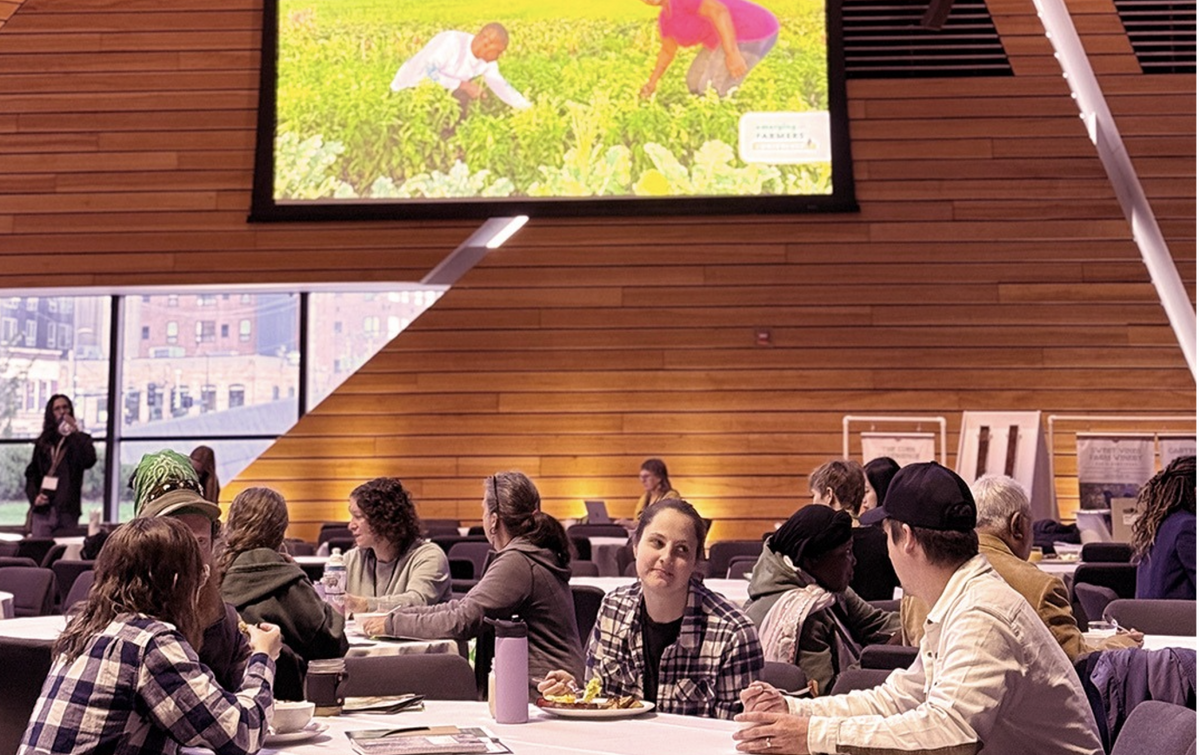
Farm, food, and justice: The University of Minnesota becomes a venue for empowering Minnesota’s underrepresented farmers

Photo shared by Big River Farms
Elena Mathern, BS ‘25, Environmental Sciences, Policy and Management
The 19th annual Emerging Farmers Conference took place on November 1-2, 2024, in the McNamara Alumni Center at the University of Minnesota. According to the conference website, the event “serves to advance the success and sustainability of farmers who traditionally face barriers to the education and resources necessary to build profitable agricultural businesses, including immigrant farmers and farmers of color.”
Due to my personal interests and coursework in environmental policy and law, I elected to attend the conference's "Policy Deep Dive" workshop. I observed that this workshop brought together diverse individuals, organizations, and emerging farmers. During the policy discussion, a panel of speakers articulated the landscape of agricultural policy, such as the farm bill and Minnesota state policies— aiming to discuss how federal and state policies affect farmers and how people can be advocates for emerging farmers. I found the intersection between farmers' rights, equality, and policy advocacy to be especially useful to take with me after this conference in my career aspirations to work in human rights and environmental laws.

Garrett Graddy-Lovelace began the workshop with a presentation on the history of US farming and the racial nuances of the agricultural industry. The policy deep dive began by discussing the 2014 and 2018 US Farm Bills. Starting with the history of the US Farm Bill, we ventured back to World War I. In WWI, pressure to ramp up the production of wheat began. The wheat prices fluctuated; when prices went up, farmers produced more to sell at high prices. When prices go down, farmers also grow more to make up for the lost profit. “We have a hidden agrarian crisis,” says Grady-Lovelace. They referred to the need for the first legal farm bill in 1938. At this time, there was a lot of discrimination in the food sector.

Billy Hackett is from a grassroots organization called the National Sustainable Agriculture Coalition (NSAC). This organization identifies nationwide policy issues and helps create campaign strategies to help solve them. “From the ground to DC has always been our model,” said Hackett when describing the emerging farmer initiatives he has undergone through NSAC. “Black, Indigenous, and People of Color (BIPOC) farmers have historically been left out of programs.”
The most touching portion of the workshop occurred when an emerging farmer from West Africa shared a personal testimony. Their story conveyed the difficulties of immigrating to the United States and becoming a farmer. The farmer's inspiration began with the idea of growing culturally significant foods like okra, and they discussed how the Down Payment Assistance Program aided them in making their farm possible. They expressed the importance of how programs eased some barriers they had in becoming a farmer as an individual who is BIPOC provided an essential stepping stone in their emerging farmer journey.
Finally, Zoe Hollomon, the Executive Director of Midwest Farmers of Color Collective, Rootsprings Farm & Retreat Co-op, highly recommended the following resources for Emerging Farmers and Advocates:
- “Food, Land and Us” is a gorgeous magazine that tells the genuine truth of BIPOC history and the farm bill in the United States.
- HEAL the Food System is another good resource and voter guide offering essential questions for a curious voter.
For more information about resources that were provided during this workshop, view the handouts digitally. Further, if you identify as an emerging farmer, advocate, or someone interested in learning more about the connections between agriculture, food, and justice, consider attending the 20th annual Emerging Farmers Conference next year. It’s not just a gathering; it’s a vibrant community where ideas and community connections flourish. Mark your calendar for November 7 and 8th, 2025, in Brooklyn Center, Minnesota, and join a movement dedicated to creating a just and sustainable future for all.





